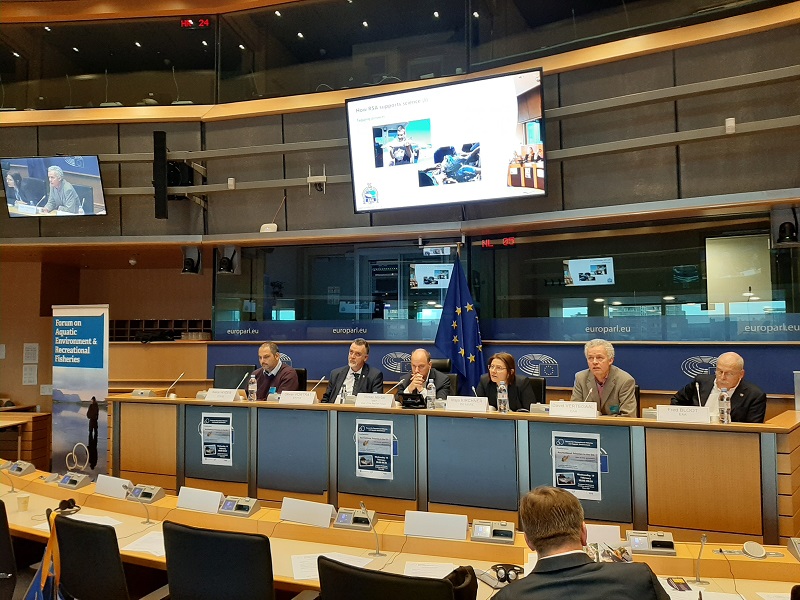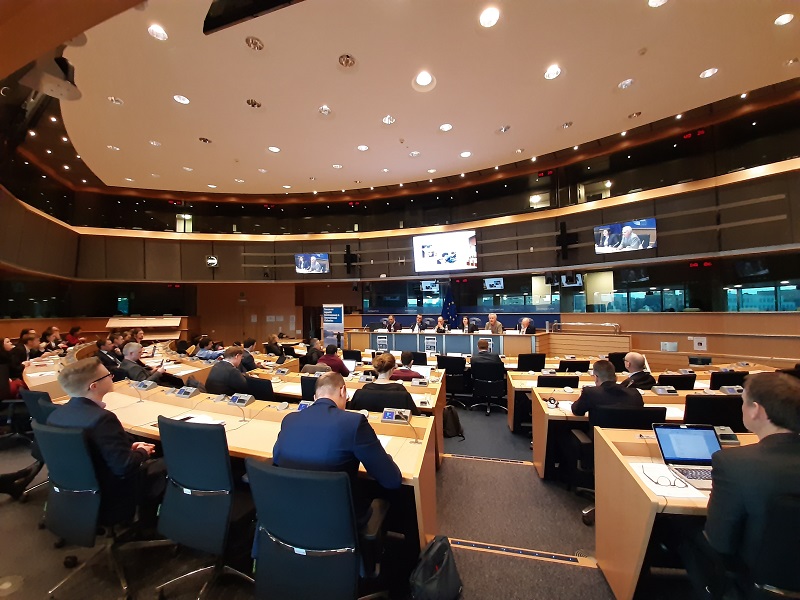Anglers made the case at the European Parliament that a full recognition of the recreational fisheries sector in the Common Fisheries Policy is needed in order to properly manage public access to fish and to put in place a fair and sustainable management of fish stocks.
On the 19th of February, MEP Niclas Herbst, new Chair of the Forum on Recreational Fisheries and Aquatic Environment, hosts the first conference of the Forum in the new European Parliament’s term. Representatives from the European Anglers Alliance (EAA) and the European Fishing Tackle Trade Association (EFTTA), take the word to underline the challenges that the recreational fisheries sector is facing and the actions to be taken in order to fully exploit its potential.
Mr Olivier Portrat, the newly appointed CEO of EFTTA, explains that Europe counts more than 8.7 million sea anglers, who generate €10.5 billion yearly with their expenditures (fishing equipment, services, fishing trips, etc.). The sector supports around 100,000 jobs in the European Union. Moreover, angling contributes to people’s health and quality of life. He adds that “only solid data allows serious conclusions to be drawn for the management of recreational fishing. Because of the high socio-economic value of angling, data-collection must be augmented significantly. (…) An effective fisheries management program would not only generate more anglers in the future, it would also be of great benefit for structurally weak, rural areas”.

The panel from left to right: Dr Kieran Hyder (CEFAS), Olivier Portrat (EFTTA), MEP Niclas Herbst (Chair of the RecFishing Forum), Maja Kirchner (DG MARE), David Vertegaal (EAA) and Fred Bloot (EAA)
Mr David Vertegaal, representing the EAA, highlights the positive contribution of anglers to the protection of the environment and their contribution to the EU green agenda. Anglers are not only vocal supporters of fish stock conservation, and - the sector also supports and collaborates with various scientific researches. He however points out that marine recreational fisheries are not considered yet as a separate sector in the Common Fisheries Policy (CFP). This prevents a sound and fair management of the sector. “The quality of the angling experience depends on healthy and flourishing fish stocks. Anglers are committed to sustainable fisheries. But we need a fair deal for recreational fisheries in the CFP, and that applies to the revision of the ongoing Fisheries Control system as well”, he explains.
Dr Kieran Hyder, Principal Scientist at CEFAS and Chair of the ICES Working Group on Recreational Fisheries Surveys highlighted what constitutes effective governance of recreational fisheries. He showed that different recreational and commercial management objectives need to be accounted for to ensure fair and equitable allocation. He concluded that “Increasing the value of marine recreational fisheries is possible if it is fully integrated into the CFP and good fishing opportunities exist. All sectors must to work together responsibly to balance competing management objectives and new science is needed to develop the data and tools to underpin policy”.
Ms Maja Kirchner, from the European Commission’s Directorate General for Maritime Affairs and Fisheries, welcomes the commitment of anglers to dialogue and their role in informing conservation measures taken by the EU, giving the example of the seabass. She emphasizes the need to continue communicating, and to collaborate to get data on endangered species.
Fred Bloot, President of the EAA, concludes the discussion by asking more comprehensive data collection on recreational fisheries and full integration into the CFP.

The documents of the meetings are available here.